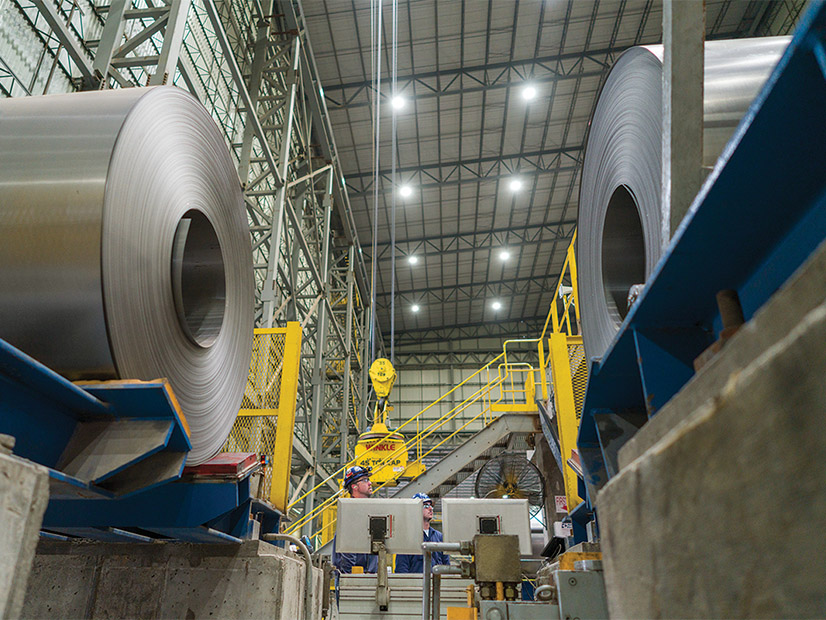FERC has approved a settlement over an Arkansas steel mill’s yearslong failure to reduce load as a registered demand response resource in MISO.
The commission on Monday sanctioned a $21 million reimbursement as part of an agreement involving Big River Steel in Osceola, Ark., Entergy Arkansas and the commission’s Office of Enforcement (IN23-11).
Big River will return nearly $16 million in profits it received from September 2016 through April 2022 for its participation in MISO’s demand response program. The company also will pay a $6 million civil penalty to the U.S. Treasury and pledge to provide compliance training to its traders if it ever intends to participate again as a demand response resource in MISO.
Entergy Arkansas, which served as the market participant for Big River, will return $5 million it received and credited to retail customers. Entergy also will coordinate with the Arkansas Public Service Commission to return to its ratepayers the approximate net $8 million they were charged for the demand response activity associated with Big River. Under its agreement with Big River, Entergy Arkansas collected a 10% administrative fee, as well as charges for the avoided energy consumption.
For years, Big River submitted offers in MISO’s day-ahead and real-time markets through Entergy Arkansas. Big River’s operations can require up to 300 MW at a time. However, FERC’s Office of Enforcement said that except for a seven-day period during the winter storm that lasted Feb. 16-22, 2021, the steel mill “did not change mill operations to alter energy consumption levels when MISO accepted its demand response offers.”
Enforcement staff concluded that Big River “operated its mill at the same load levels as it would have if it had not been” a demand response unit within MISO. They said MISO made demand response payments to Big River when its load was below its usual baseline, but those below-average usages still were in the normal course of mill operations.
From late 2016 to April 2022, MISO paid nearly $21 million for Big River’s participation as a demand response resource. The RTO charged Entergy Arkansas, Entergy Louisiana, Entergy Mississippi, Entergy Texas and other MISO South load-serving entities for the load reductions.
FERC said while Big River ultimately decided how much and when to offer reduced energy usage into MISO’s day-ahead and real-time markets, Entergy Arkansas also is culpable for the steel mill’s conduct. Under the settlement agreement, the two “neither admit nor deny the alleged violations,” according to FERC.
FERC said from 2016 to mid-2020, Big River submitted offers to MISO for load reductions that would correspond to expected outages. By the latter half of 2020, Big River usually offered 100 MW in reductions in the MISO market, even if it had no reason to expect an outage the next day.
Starting in 2019, FERC said Big River additionally would make small, 1-MW offers daily in MISO’s day-ahead market. FERC said by submitting the small offers, it received demand response payments daily, thereby allowing it to undermine MISO’s baseline use calculation that it performs for its demand response resources.
MISO and Big River staff reportedly clashed in 2019, when the steel mill requested a demand response payment for a previously planned outage. MISO refused and told Big River to pursue a settlement dispute.
FERC said Big River and Entergy Arkansas have committed to working with MISO to ensure that the amounts they’re surrendering will “be returned to the market participants that were charged those amounts.”
In an emailed statement to RTO Insider, Entergy Arkansas said it agreed with FERC’s findings that Big River operated its mill at load levels as if it weren’t a demand response unit and didn’t alter energy consumption when MISO accepted its demand response offers.
However, spokesperson Neal Kirby said Entergy Arkansas “is not aware of any evidence suggesting that Big River tried to game MISO’s demand response program.”




